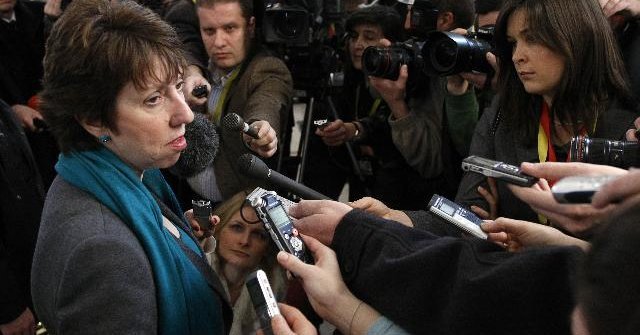Thousands of desperate people, mostly young people from Tunisia, have arrived onshore since mid January causing Italy to ask European Union to help in coping with the migrants’ wave. After an embarrassing misunderstanding between Mr Maroni and EU home affairs commissioner Cecilia Malmström, who denied receiving any request for help from Italy before February 15th contrary to what Mr Maroni had publicly said, the EU has pledged to help Italian authorities to cope with the emergency.
Even if ’humanitarian’ aid is not exactly what the Italian authorities are looking for, the EU border agency Frontex and the EU asylum support office are assessing how to help Italy. Some hundreds of military forces are due to be sent to Lampedusa island in order to coordinate Italian efforts to manage the emergency with thousands of migrants sleeping in a football field under the sky.
Of course this is not the first immigration red alert for Italy, used to being the ’hope land’ for millions of poor and desperate people coming from Northern African countries.
Either way, the falls of some authoritative regimes, such as Tunisia and Egypt, are expected to boost migrants waves towards Europe through Italy. The Italian government, indeed, is reportedly to have sealed deals with some African regimes, such as Libya, giving political support for help in containing immigration without taking into consideration abuses and bad treatment of refugees.
For the time being, after the collapse of such regimes, Italy is due to face its lack of concrete immigration policy despite it lies at the core of Mr Berlusconi’s government which has the strongly anti-immigrant Northern League as an alley. Nevertheless, without any doubts this is not going to be a problem to be addressed only by Italy.
« The European Commission is fully aware of the exceptional pressure on Italy and stands ready to support Italians and show European solidarity », said Michele Cercone, spokesman of commissioner Malmström. But it is not just about solidarity. The North Africa is crucial for Europe, because of both migration and terrorism. Then the recent upheavals in the Arabic world are expected to be the most demanding challenges to the new set up European External Action Service which came into force on January 1st. Led by Catherine Ashton, the EEAS has so far coped just with in-fighting and officials’ nominations. Now that everybody got a new job, it is definitely time to start working.
Unfortunately, Lady Aston’s first steps do not look going in the right direction. Even if she was ready to fly to Tunisia after the European Consilium meeting on February the 4th to meet the new Tunisian government, she still looks too shy to be able to swim in this hot water. She did go to Tunisia trying to focus more on the EU assistance given to democratic reforms rather than on the row with Italy. But the issue is unlikely to be swept under the carpet. Mr Franco Frattini, Italian foreign minister, contacted Ms Ashton asking for a blockade of Tunisian ports by the EU’s border agency, something too far from what Frontex is allowed and willing to do. But saying ’No’ to a foreign minister is not easy for Lady Ashton. Being appointed as EU external relations’ chief, she is striving to receive the consensus by all the EU foreign ministers before speaking about whatsoever. But the prize for diplomacy does not pay in such circumstances.
The North Africa emergency, the upheavals in the Arabic world, the strong and authoritative reactions of those regimes – that overreacted -, the dead demonstrators in the streets and the waves of desperate migrants coming to Italy over the last weeks ask for something stronger than weak and diplomatic position.
The revolution rose up in the neighbouring Libya over the last days showed how much an official EU condemnation is fundamental. As for the European Commission, it has already done its duty keeping in contact with Frontex and the EU asylum support office. But the wished ousting of Colonel Gheddafi, the 30 years strongman in Libya, may break down the final lid on immigration from the rest of Africa towards Europe.
Meanwhile, what is doing the High Representative? While protests are gathering momentum in the whole of Arabic world, Lady Ashton is still rushing in putting together all the 27 foreign ministers to have an unique European position. But if she cannot help to disappoint anybody it is going to be impossible. French authorities have already spoken about « respecting foreign governments’ decision » before Ben Ali having been compelled to step down by Tunisian people. Italy and France look sharing the same position of keeping relations with authoritative regimes in order to keep control on immigration. No matter the price.
If Catherine Ashton wishes to gain a better stage on international politics on behalf on Europe, she must go further being a mere servant of national governments. If the High Representative wishes to be effectively ’high’ she must stop being so shy, on the contrary she has to draw a line, take a position, have a stand. At least now.


Follow the comments: |
|
